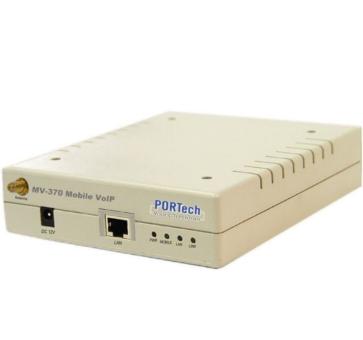Beschreibung
Highlights:
- VoIP(SIP), Konvertierung UMTS/LTE. (MV-370) für die Weltweite Kommunikation
- 50 Einstellungen für LAN50
50 Einstellungen für Mobilfunk- Unterstützt "one stage diaing"
- Unterstützt "assigned mode and free mode-two stage dialing"
- Sprachmerkennung für Einstellungen und Status (Einwahl vom Mobilfunknetz)
- Anrufzustellung (VoIP to GSM/UMTS/LTE)
- Verbindungsherstellung (GSM/UMTS/LTE to VoIP)
- Standard SIP(RFC2543,RFC3261) Protokoll, mit Gateway oder PC
- SMS empfangen und SMS senden
- Ermöglicht Ihrem Programm das Senden/Empfangen von SMS mit dem AT-Befehl
- Rückruf-Funktion
- Alle Funktionen können im Web eingestellt werden
- CDR zur Verfügung stellen
Datenblatt:
| Spezifikation/th> | Protokolle: SIP (RFC2543, RFC3261) | TCP/IP: IP/TCP/UDP/RTP/RTCP/CMP/ARP/RARP/SNTP/DHCP/DNS-Client | IEEE802.1P/Q, ToS/DiffServ | NAT-Traversal | STUN, uPnP | IP-Zuweisung | statische IP | DHCP | PPPoECodec: G.711 u-Law | G.711 a-Law | G.729A | G.729A/B | Sprachqualität VAD | NG, AEC | LEC | Paketverlust |
|---|
| 4G LTE version (Global) | LTE FDD: B1 (2100 MHz), B2 (1900 MHz), B3 (1800 MHz), B4 (1700 MHz), B5 (850 MHz), B7 (2600 MHz), B8 (900 MHz), B12 (700 MHz), B13 (1800 MHz), B18 (850 MHz), B19 (800 MHz), B20 (800 MHz), B25 (1900 MHz), B26 (850 MHz), B28 (700 MHz) | LTE TDD: B38 (2600 MHz), B39 (1900 MHz), B40 (2300 MHz), B41 (2500 MHz) | WCDMA (3G): B1 (2100 MHz), B2 (1900 MHz), B4 (1700 MHz), B5 (850 MHz), B6 (800 MHz), B8 (900 MHz), B19 (800 MHz) | GSM (2G): B2 (1900 MHz), B3 (1800 MHz), B5 (850 MHz), B8 (900 MHz) |
|---|
Portech MV-370 4G
Das 4G Gateway unterstützt auch 3G und GSM. Eine 4G SIM-Karte muss zwingend eingelegt sein. Wenn kein 4G-Signal verfügbar, wird es sich per 3G oder 2G GSM anmelden.
Art.No.: VOPORTMV3704G



